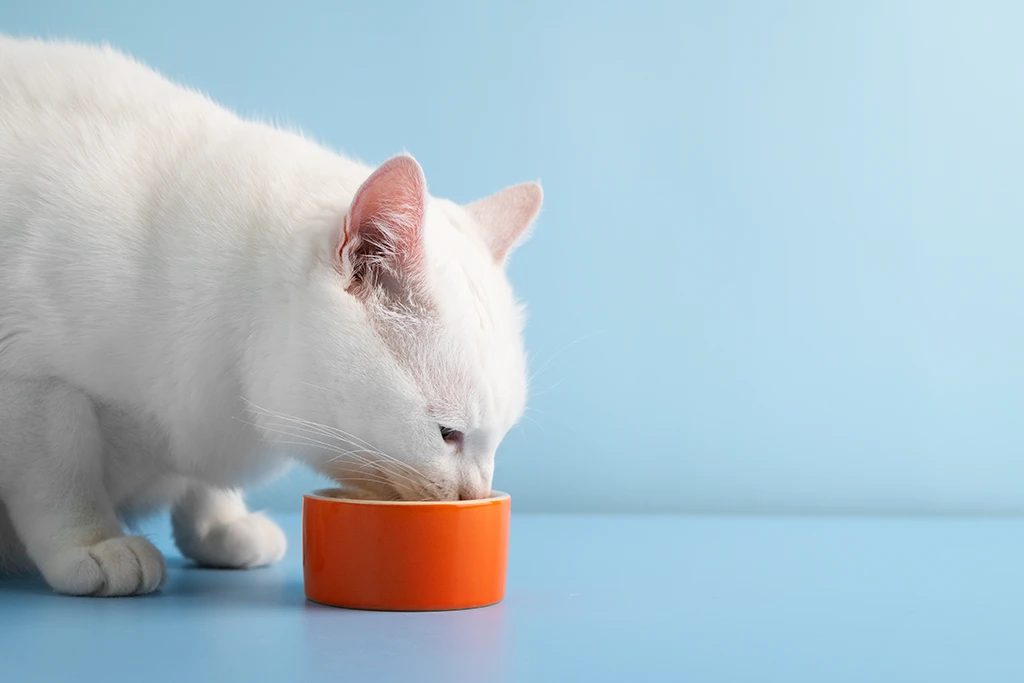

As a cat enthusiast who has dedicated years to their care, I’ve seen firsthand the toll that chronic conditions take on these precious creatures. Watching a feline companion in pain or struggling with a persistent ailment is truly heartbreaking.
It’s natural for paw-rents to want to alleviate their suffering and ensure they enjoy their best life, even when faced with challenging health conditions. In this pursuit, many cat owners are turning to alternative therapies like CBD, seeking a more holistic approach to their pet’s wellness
Table of Contents
ToggleCBD, short for cannabidiol, is a natural compound derived from the hemp plant, a close relative of cannabis. Unlike its more famous cousin, THC, CBD doesn’t induce any psychoactive effects. In other words, it won’t get a cat “high.” Instead, CBD works its magic by interacting with a cat’s endocannabinoid system (ECS).
Think of the ECS as a vast network of receptors spread throughout a cat’s body, much like a complex communication system. This system plays a vital role in regulating various bodily functions, including mood, sleep, appetite, and even pain perception.
CBD gently interacts with these receptors, helping to maintain balance and promote overall well-being in a feline friend. It’s like a gentle nudge towards harmony, supporting a cat’s natural ability to heal and thrive.
“The endocannabinoid system plays important roles in central nervous system development, synaptic plasticity, and the response to endogenous and environmental insults,” (Lu, H., & Mackie, K., 2016).

While the world of CBD research is constantly evolving, the evidence so far paints a promising picture of its potential benefits for cats grappling with chronic health issues. Imagine a future where feline companions experience relief and improved well-being, thanks to the natural properties of CBD.
Chronic pain, whether from arthritis, injuries, or even cancer, significantly diminishes a cat’s quality of life. Watching them struggle to move or engage in their favorite activities is heart-wrenching. Thankfully, CBD’s anti-inflammatory properties help alleviate pain by soothing inflamed tissues and modulating pain signals. With CBD, cats potentially experience greater comfort and mobility, allowing them to rediscover the joy of play and exploration.
“CBD shows analgesic and anti-inflammatory effects in various models, with potential clinical applications in treating neuropathic pain, inflammatory pain, and osteoarthritis,” (Mlost, J., Bryk, M., & Starowicz, K., 2020).
Anxiety and stress manifest in cats in many ways, from excessive grooming and hiding to aggression and inappropriate elimination. These behaviors are not only distressing for the cat but also impact their overall health and well-being. CBD’s calming effects offer a gentle solution. By interacting with the endocannabinoid system, CBD promotes a sense of relaxation and eases anxious feelings, helping feline friends feel more secure and content.
“Cannabidiol (CBD) shows potential in veterinary medicine for treating seizure, anxiety, osteoarthritis, and atopic dermatitis, with limited evidence in dogs,” (Ukai, M., McGrath, S., & Wakshlag, J., 2023).
For cats with epilepsy, the occurrence of seizures is both frightening and debilitating. While traditional anti-seizure medications are available and effective, they often come with unwanted side effects. CBD has emerged as a potential adjunctive therapy, with studies suggesting it helps reduce the frequency and severity of seizures. This offers a glimmer of hope for improved quality of life for cats with epilepsy and their dedicated owners.
“CBD acts in a CB1 receptor-independent manner to inhibit epileptiform activity in vitro and seizure severity in vivo,” (Jones, N., et al, 2010).
The potential benefits of CBD for cats extend beyond pain, anxiety, and seizure management. Preliminary research indicates that it also aids in:
Managing Inflammation: Reducing inflammation throughout the body benefits cats with various chronic conditions.
Stimulating Appetite: For cats experiencing loss of appetite due to illness or medication, CBD helps encourage them to eat.
Supporting Cancer Patients: While research is ongoing, CBD offers supportive care for cats with cancer by managing pain, nausea, and other symptoms.
While we eagerly anticipate further research to uncover the full potential of CBD for cats, the current evidence provides a compelling reason for optimism.

Navigating the world of CBD products is overwhelming, especially when a cat’s health is at stake. To ensure a furry companion receives the maximum benefits while minimizing any potential risks, it’s vital to choose a CBD product that is both safe and effective.
Look for products specifically formulated for pets. Some human CBD products contain ingredients that aren’t suitable for cats, such as certain essential oils or sweeteners.
Organic and Third-Party Tested: Opt for products made from organic hemp and verified by independent laboratories. Third-party testing ensures the product’s purity and potency, guaranteeing that consumers are getting what’s advertised on the label.
Low or No THC: THC, the psychoactive compound in cannabis, is toxic to cats. Choose products with negligible or zero THC content to ensure the cat’s safety.
CBD comes in various forms, each with its own advantages and drawbacks. Consider the cat’s personality, preferences, and specific needs when selecting.
Oils/Tinctures: CBD oils offer precise dosage control and are absorbed quickly into the bloodstream, potentially providing faster relief. They are administered directly into the cat’s mouth or mixed with their food.
Treats: CBD-infused treats are a convenient and tasty way to administer CBD, especially for picky eaters. However, keep in mind that the effects take longer to kick in as the treatment needs to be digested first.
Topicals: CBD balms and creams are applied directly to the skin, offering targeted relief for localized issues like skin irritations or joint pain.
Remember, the best form of CBD for a cat depends on their individual needs and preferences. If unsure which option is right for a feline friend, don’t hesitate to consult the cat’s veterinarian for personalized recommendations.
Before starting a cat on CBD, consult the cat’s veterinarian. Veterinarians guide owners to choose the right CBD product, determine the appropriate dosage, and monitor a pet’s progress.
However, not all veterinarians welcome the idea of using CBD on pets as research is still ongoing. In this case, consult holistic veterinarians for proper clinical assessment of the pet’s needs. Open discussions with them provide answers to questions, address any concerns, and ensure the pet’s CBD journey is a safe and successful one.
Start with a low dose and gradually increase it, carefully observing a cat’s response. Make CBD administration a positive experience. If using oil, try mixing it with their favorite food or gently applying it to their gums. If a cat prefers treats, that’s an option too!
When it comes to CBD dosage for cats, it’s not a one-size-fits-all situation. Veterinarians consider factors like a cat’s weight, the specific condition being addressed, and their individual sensitivity to CBD. Generally, starting with a low dose and gradually increasing it is the way to go. Think of it as finding the perfect volume on the radio – listeners do not crank it to the max right away, right?
“Escalating doses of CBD and THC, alone and in combination, are safe and tolerable in healthy cats, with mild, transient adverse events,” (Kulpa, J., et al, 2021).
Administering CBD should be a positive experience for both cat parents and their cats. If using CBD oil, the options are listed below.
Direct application: For cooperative cats, gently apply the oil directly to their gums or under their tongue. This allows for faster absorption into the bloodstream.
Mix it with food: This is a sneaky but effective way to get those beneficial drops into a cat. Simply mix the oil with their favorite wet food, and watch them lap it up!
If a cat is particularly finicky, CBD treats are the way to go. These tasty morsels make administering CBD a breeze.
As with any new addition to a cat’s routine, it’s important to monitor their response to CBD. Keep an eye out for any changes in behavior, appetite, or energy levels. If any adverse reactions are noticed, discontinue use and contact the cat’s veterinarian.
Research suggests CBD is generally safe for cats when administered responsibly. However, consulting a veterinarian before starting any new supplement, especially if a cat has underlying health conditions or is on medication, is crucial.
“Single orally administered CBD doses up to 80 mg/kg were safe and well-tolerated in cats, with dose-proportional pharmacokinetics across a broad concentration range,” (Rozental, A., et al., 2022).
While CBD is generally safe, some cats experience mild side effects like drowsiness, vomiting, or changes in appetite. If any adverse reactions are observed, discontinue use and contact the cat’s veterinarian.
With the increasing popularity of CBD for pets, paw-rents find various products available, including those with added essential oils for potential extra benefits. However, always consult the cat’s veterinarian before introducing any new product to a cat’s routine.
CBD holds promise as a supportive therapy for cats with chronic conditions. By understanding its potential benefits and risks, working closely with a veterinarian, and choosing high-quality products, paw-rents help their feline companion live a more comfortable and joyful life.
Remember, knowledge is power. Stay informed about the latest research, communicate openly with the cat’s veterinarian, and prioritize the cat’s well-being above all else.

Table of Contents
Toggle